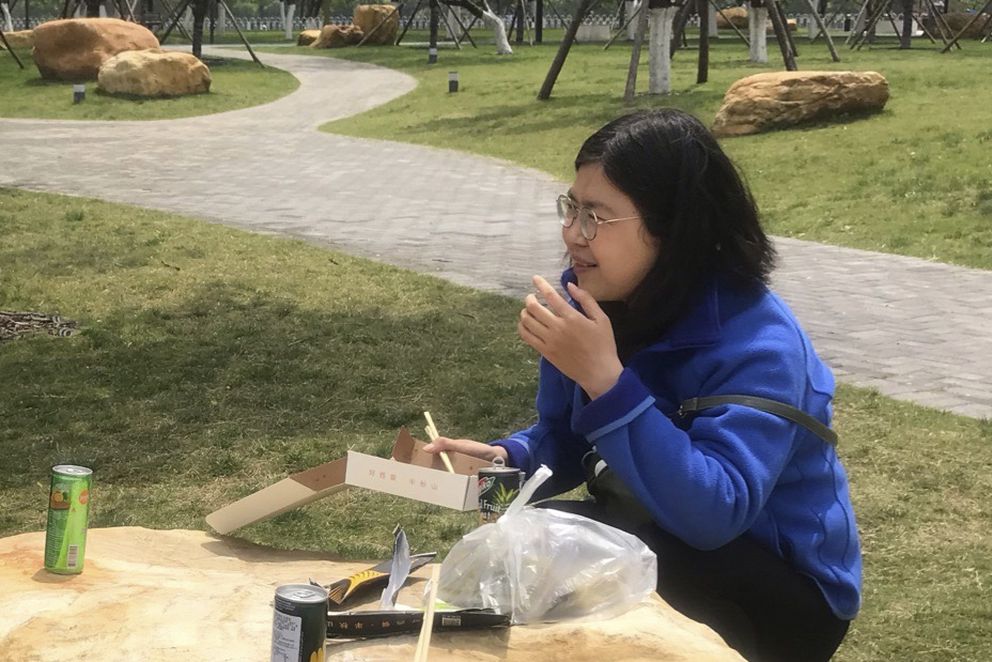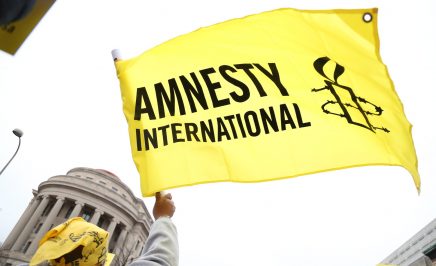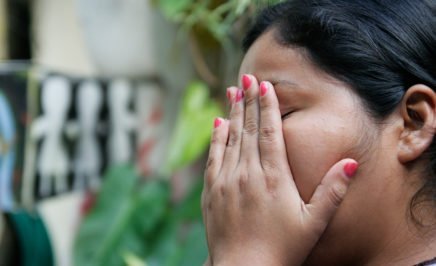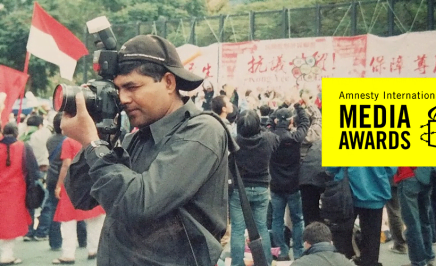Freedom of expression is the right to seek, receive and impart information and ideas of all kinds. Freedom of expression is a fundamental human right, however, around the world there are a number of authorities attempting to obstruct it.
Journalists, media professionals, writers and activists all play a key part in maintaining freedom of expression and holding the powerful to account. Unfortunately, they often find themselves facing danger for doing their work. Social media has added a new layer to freedom of expression as citizen journalists use online platforms to document and report human rights abuses.
What is a citizen journalist?
Citizen journalists are individuals who report news through a variety of different public channels without affiliation with any form of media outlet or government. Many citizen journalists post information on social media, including YouTube, Twitter and Instagram, to audiences of various sizes.
In some countries citizen journalists were the only source of uncensored, first-hand information about COVID-19. Citizen journalists were able to hold media and governments accountable for any inaccuracies or a lack of news. However, their work often came at the cost of constant harassment for exposing information the government would rather keep quiet.
The case of Zhang Zhan
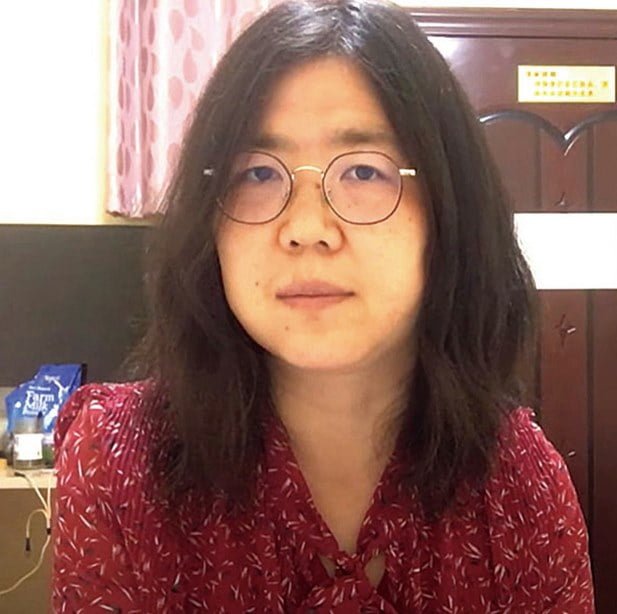
Citizen journalist Zhang Zhan, 37, disappeared in May 2020 after documenting the response of her government to the COVID-19 outbreak in Wuhan.
Previously a lawyer, Zhang Zhan travelled to Wuhan in February 2020 determined to get the truth out about how government officials had detained independent reporters and harassed families of Covid-19 patients.
After her posts to YouTube suddenly stopped in May 2020, authorities confirmed that she had been detained by police in Shanghai, 640km away. Following her arrest, she began a hunger strike, to protest her detention. Her hunger strike continues to this day, raising serious concerns over her health if she continues to be imprisoned.
“We should seek the truth and seek it at all costs… Truth has always been the most expensive thing in the world. It is our life.”
Zhang Zhan
In September 2020, she was sent to court on charges of “picking quarrels and provoking trouble”, a charge that carries a maximum prison sentence of five years. Three months later she was found guilty and sentenced to four years imprisonment. On the date of her court hearing, she appeared in a wheelchair.
Zhang Zhan has remained in Shanghai Women’s Prison since March 2021. The authorities continue to refuse her family visits.
Why is Zhang Zhan’s case important?
It is imperative that Zhang Zhan is immediately and unconditionally released from detention. Without access to family and lawyers of her choice, Zhang Zhan remains at risk of further torture and other ill-treatment by the authorities, especially if she continues her hunger strike.
Since the outbreak of Covid-19 in China, numerous articles relating to the virus have been censored, and related social media posts, sensitive hashtags and demands for freedom of expression have all been quickly deleted or censored. Citizen journalists in China are unable to obtain the official accreditation required to report news and face constant harassment and repression for reporting news and disseminating information that is censored by the government.
Over the past few years, civil society groups and human rights defenders (HRDs) in China have been facing an even more restrictive environment – many face prosecution, censorship and constant surveillance just for peacefully defending and exercising human rights.
It is now more important than ever to secure press freedom and ensure human rights defenders are able to challenge injustice.
Action you can take for Zhang Zhan
- Tell China to free Zhang Zhan immediately by signing the Amnesty International Australia petition for her release.
- Follow the Amnesty International Australia Media Awards as they carry out action for Zhang Zhan and support the rights of journalists, by celebrating the work of Australian journalists. The Media Awards will take place on the 18th November where winners will be announced in the categories of: Photography, Cartoon, Print/Online, Indigenous Issues Reporting, Radio and Television.
